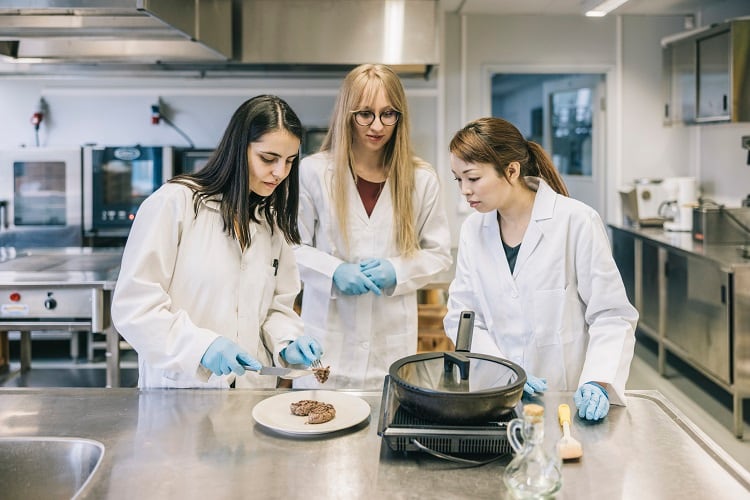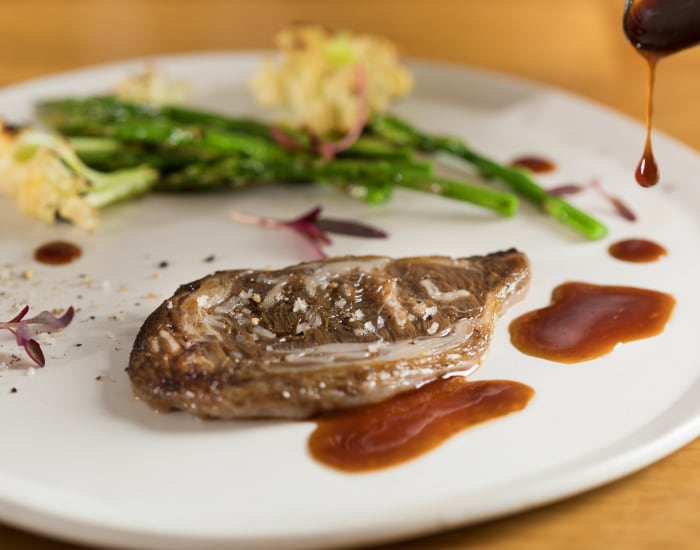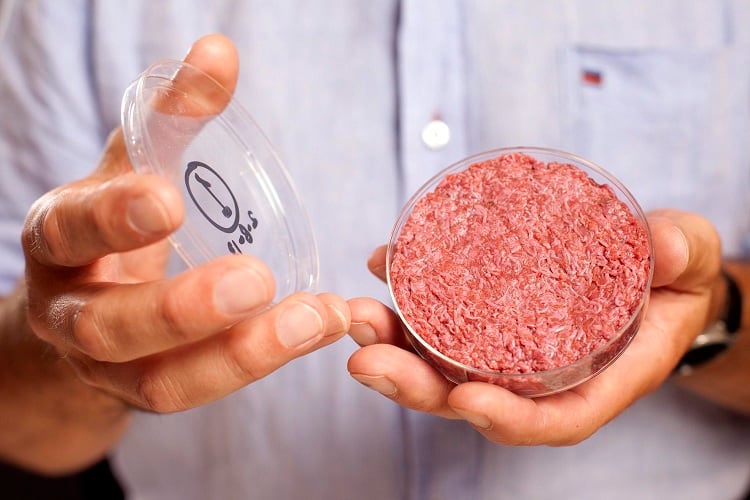Makers of cultivated meat face several hurdles on the route to commercialisation. Scalability is a big one, as is regulation, nutrition, consumer acceptance, and cost.
The latter is typically associated with growth media, and in particular, foetal bovine serum (FBS) growth media.
Used in biomedical research, as well as in biopharmaceutical and therapeutical production, the blood serum is usually extracted from bovines during the slaughtering process. While from a scientific perspective, FBS has a great number of benefits – including its ability to encourage significant cell growth – is also comes with its challenges.
Aside from its high cost, FBS is a biologically variable ingredient that presents technological, ethical and sustainability issues for cultivated meat.
Can this novel food product be developed without animal serum? Yes, it can, according to Dutch cultivated meat start-up Mosa Meat, who in the interest of ‘openness’ and ‘transparency’ has decided to share how.
The science behind muscle differentiation
In academic journal Nature Food, PhD candidate at Mosa Meat Tobias Messmer and corresponding authors from Mosa Meat, have detailed how the start-up uses transcriptomics and proteomics to develop a ‘defined’ serum-free media formulation for inducing the differentiation of bovine satellite cells into muscle fibres.
To develop optimised serum-free cell culture media, Messmer and colleagues leveraged RNA sequences and differential expression understanding to target compounds with the ‘desired effects’. This enabled them to gain a ‘deeper understanding’ of the molecular changes in cell-surface receptors occurring during myogenic differentiation, the report authors explained.
Known ligands were then utilised to target receptors of interest, whose expressions was altered – inducing myogenic differentiation without the need for animal serum.
Performance of the serum-free media was investigated at different cell passage levels and in a model 3D system. While key myogenic differentiation markers were monitored in the 3D model, the serum-free media did not achieve 3D cell differentiation comparable to that of serum-starvation control conditions.
“Thus, the serum-free media will need further optimisation for a 3D culture system, as well as market-ready biomaterials that could be scaled to industrial food-grade production levels,” noted the authors.
A ‘milestone’ for cultivated meat
Mosa Meat has filed a patent for its cell feed formulation, meaning it is publicly available but protected for commercial use for a limited amount of years.
“This is really a milestone for us and for the cultivated meat field, because there’s no method out there that describes the differentiation of primary satellite cells if you don’t want to use FBS or genetically modify your cells,” said Mosa Meat scientist and co-author of the report Dr Joshua Flack.
Although the decision to publish these details could be seen as ‘competitively sensitive’, Mosa Meat CEO Maarten Bosch suggested the decision to publish underlined the start-up’s values of openness and transparency for the ‘entire cellular agriculture field’.
“We’re also dedicated to creating a healthy business and protecting our intellectual property. Having made significant progress since submitting this paper over a year ago, we are convinced we are striking the right balance with this publication.”
Source: Nature Food
'A serum-free media formulation for cultured meat production supports bovine satellite cell differentiation in the absence of serum starvations'
Published online 13 January 2022
DOI: https://doi.org/10.1038/s43016-021-00419-1
Authors: Tobias Messmer, Iva Klevernic, Carolina Furquim, Ekaterina Ovchinnikova, Arin Dogan, Helder Cruz, Mark J. Post, and Joshua E. Flack.




